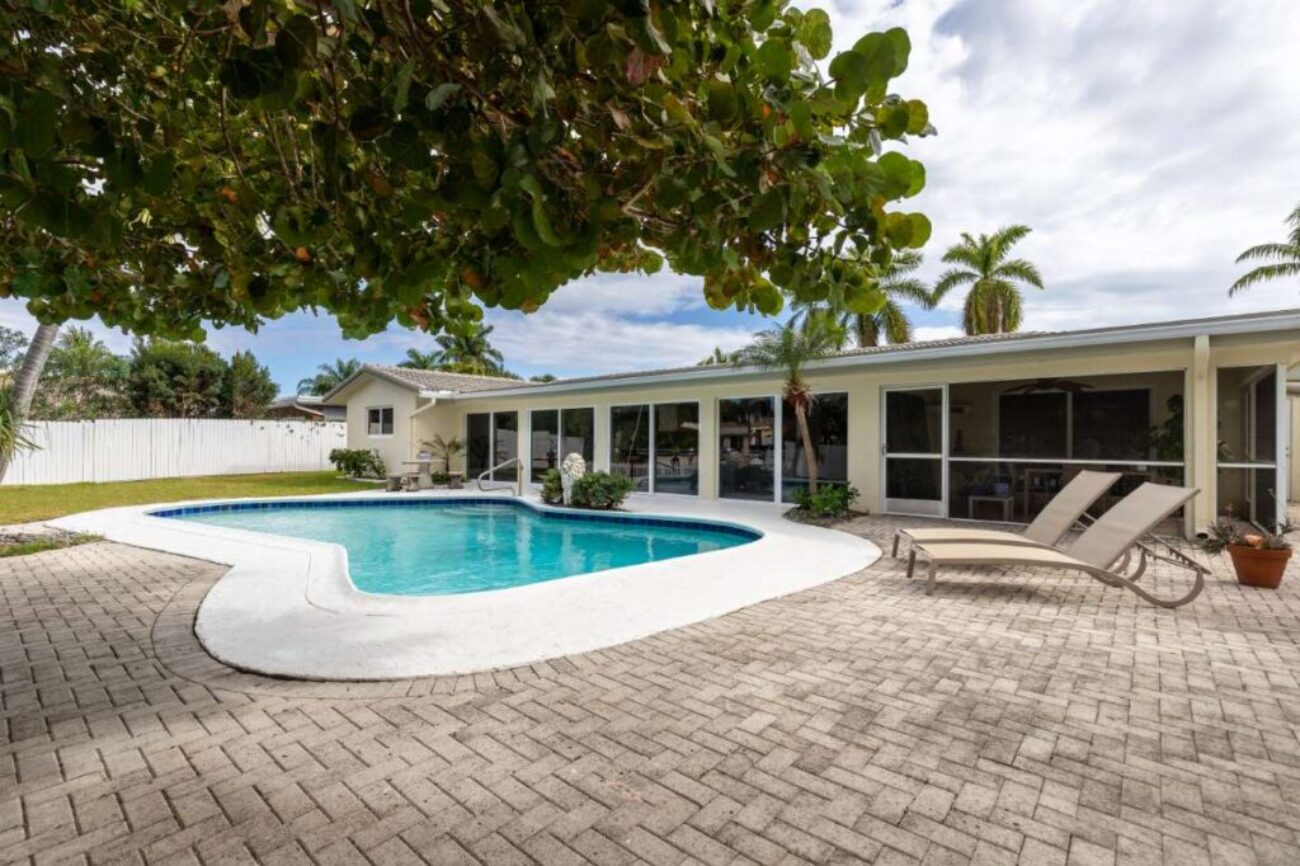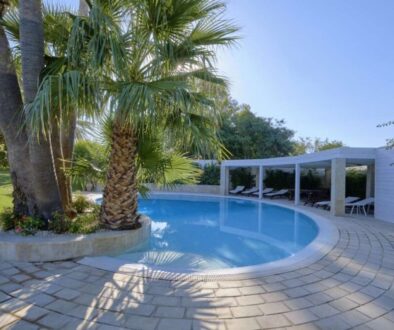The significance of goodwill in pool route pricing is often overlooked, yet it plays a crucial role in determining the value of these businesses. This article explores how goodwill impacts pool route pricing, offering insights for prospective buyers and sellers alike.
The Role of Goodwill in Pool Route Pricing
In the pool maintenance industry, the concept of goodwill encompasses the intangible assets that a business accumulates over time. These assets can include brand reputation, customer loyalty, and established relationships with clients. Understanding the role of goodwill in pool route pricing is essential for both buyers and sellers, as it directly influences the valuation and success of these businesses. This blog post will delve into the various dimensions of goodwill in pool route pricing, including its definition, how it affects business valuations, and important considerations for those looking to buy or sell their pool routes.
Introduction
The pool maintenance industry is expanding, creating numerous opportunities for entrepreneurs and existing business owners. When considering the purchase of a pool route, it’s vital to assess the value of goodwill associated with the business. Goodwill can significantly enhance the profitability and sustainability of a pool service, making it a key factor in pricing. This article will explore how goodwill influences pool route pricing, the benefits of acquiring goodwill, and practical strategies for evaluating it during transactions.
Understanding Goodwill in the Context of Pool Routes
Goodwill represents the value of a business beyond its tangible assets. In the context of pool route pricing, goodwill can manifest in several ways. A well-established pool service may have a strong brand presence and loyal customer base, which are invaluable assets. According to business valuation experts, goodwill is often attributed to factors such as:
- Brand Recognition: A recognizable brand can command higher prices, as customers are more likely to trust a reputable name.
- Customer Loyalty: Established relationships with clients can enhance customer retention, leading to steady revenue streams.
- Market Position: A pool service with a significant market share within its geographical area may enjoy an advantageous position that can attract potential buyers.
For example, a pool service operating in a bustling city with high demand may have considerable goodwill due to its established customer base, while a newer service in a less populated area might struggle to achieve the same level of recognition.
The Impact of Goodwill on Valuation
When it comes to valuing a pool route, goodwill can account for a substantial portion of the price. Several methodologies are used to quantify goodwill, including the income approach, the market approach, and the asset-based approach. Each method considers goodwill in different ways, but all recognize its importance in pricing pool routes.
- Income Approach: This method estimates the future earnings attributable to goodwill and discounts them to present value. For instance, if a pool route consistently generates $100,000 per year, and a buyer expects this revenue to continue, the goodwill could be assessed based on projected earnings.
- Market Approach: This approach compares the pool route with similar services that have recently sold, taking into account the goodwill of those comparable businesses. If a similar pool route sold for $250,000 with significant goodwill, it can help set a benchmark for the valuation of another route.
Assessing goodwill is critical, as it can lead to a more accurate and fair price for both buyers and sellers. A pool route with established goodwill will typically command a higher price than one without these intangible assets.
Evaluating Goodwill When Buying a Pool Route
For prospective buyers, understanding and evaluating goodwill is crucial in making informed purchasing decisions. Here are several key aspects to consider when assessing goodwill in a pool route:
- Customer Retention Rates: Investigating customer retention rates can provide insights into the loyalty of the client base. High retention rates are indicative of a strong goodwill position.
- Brand Strength and Reputation: Researching how the pool service is perceived in the community can help gauge goodwill. Online reviews, testimonials, and social media presence can offer valuable insights into the brand’s reputation.
- Operational History: Analyzing the operational history of the pool route, including its growth patterns, can help determine how effectively the business has built goodwill over time.
- Competitive Landscape: Understanding the competitive environment is essential. If there are many competitors offering similar services, the value of goodwill might be less pronounced.
Considering these factors can help buyers appraise the actual worth of goodwill and how it translates into financial performance.
Goodwill and Pool Route Transferability
When selling a pool route, transferring goodwill can significantly affect the sale process. Goodwill can be a double-edged sword; while it adds value, it also requires careful management. Sellers must ensure that the goodwill established during their ownership is effectively communicated to potential buyers. This could involve:
- Clear Documentation: Providing detailed records of customer interactions, service history, and marketing efforts can demonstrate the value of goodwill to prospective buyers.
- Client Introductions: Transitioning goodwill can also involve introducing buyers to established clients. These introductions can smooth the transition, building trust between customers and the new owner.
- Consistent Branding: Maintaining consistent branding during the transition period is vital in preserving goodwill. Familiarity with branding helps reassure customers that they are still receiving the same level of service.
Sellers who prioritize the transfer of goodwill can facilitate a smoother sale and potentially secure a higher price for their pool route.
Strategies for Building Goodwill in Pool Routes
For both prospective buyers and current owners of pool routes, understanding how to build goodwill is crucial for long-term success. Here are some effective strategies to enhance goodwill:
- Exceptional Customer Service: Providing outstanding customer service creates a positive experience for clients, fostering loyalty and word-of-mouth referrals.
- Consistent Quality: Ensuring high-quality service delivery can build a strong reputation over time. Satisfied customers are more likely to recommend services to others.
- Community Engagement: Actively participating in local events and supporting community initiatives can enhance brand visibility and goodwill. Engaging with the community can lead to a loyal customer base that appreciates local businesses.
- Feedback Mechanisms: Implementing surveys or feedback mechanisms allows clients to voice their opinions about services. Responding positively to feedback demonstrates commitment to improvement, which can enhance goodwill.
Investing in strategies that build goodwill can significantly affect the long-term profitability and sustainability of a pool service.
Understanding the Risks Associated with Goodwill
While goodwill can enhance the value of a pool route, it’s essential to acknowledge the risks involved. Market fluctuations, changes in customer preferences, and increased competition can all impact the sustainability of goodwill. Here are some risks to consider:
- Market Saturation: If the pool maintenance market becomes saturated, goodwill may diminish as competition increases, leading to potential revenue declines.
- Reputation Damage: A single negative event, such as a service failure, can harm goodwill and customer trust. Consistent quality is vital to preserving goodwill.
- Economic Downturns: Economic conditions can influence discretionary spending, impacting customer retention and goodwill. Understanding market dynamics is crucial for managing these risks.
Awareness of these risks is essential for both buyers and sellers in navigating the complexities of goodwill when pricing pool routes.
The Future of Goodwill in Pool Route Pricing
As the pool maintenance industry continues to evolve, the role of goodwill in pricing will likely also develop. Factors such as technology integration, changing consumer behaviors, and increased competition will shape how goodwill is assessed. For instance, businesses leveraging technology for service delivery may find their goodwill enhanced through improved customer experiences.
Additionally, as environmental considerations become more prominent, pool services that adopt sustainable practices may foster goodwill by aligning with consumer values. Adapting to these trends will be essential for maintaining goodwill and ensuring continued success in the market.
Conclusion
Goodwill plays a pivotal role in pool route pricing, influencing the valuation and appeal of these businesses. Understanding its significance is vital for both buyers and sellers, as it can greatly affect financial outcomes. By evaluating goodwill, implementing strategies to enhance it, and being aware of associated risks, stakeholders can navigate the complexities of the pool maintenance industry effectively. As the industry grows, the focus on goodwill will likely remain a critical consideration for achieving lasting success in pool route ownership. For those interested in exploring pool routes for sale, Tower Business Brokers offers valuable insights and opportunities to help you begin your journey into pool route ownership. Contact us today to learn more about available routes and start your path to success in the pool maintenance industry.



